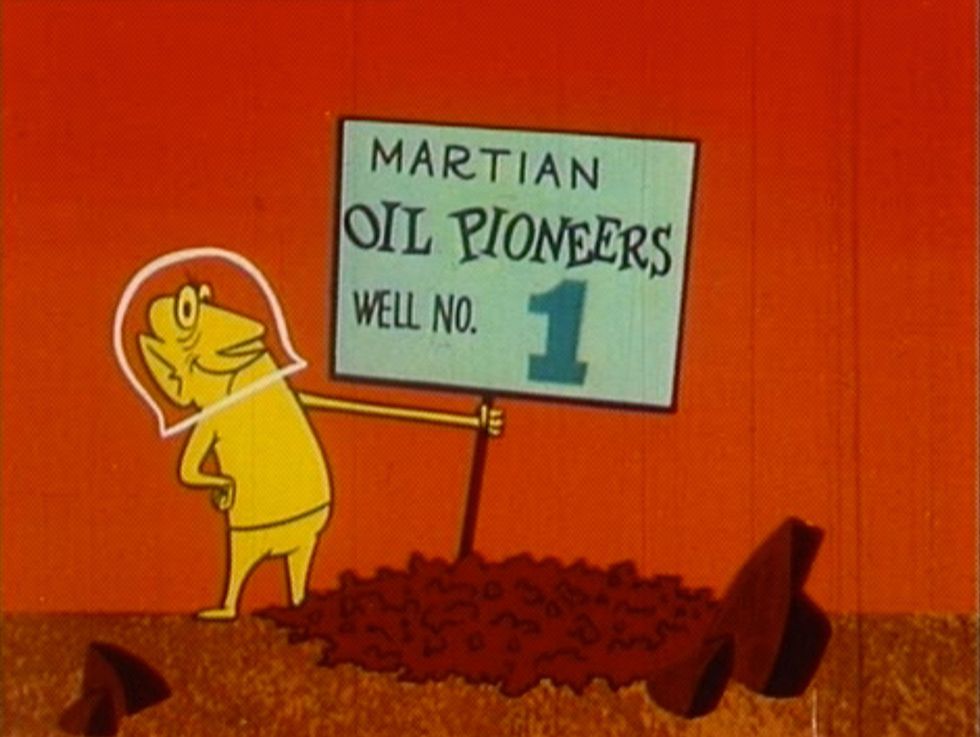Our Friends, the Oil Industry

The oil industry continues to look out for the planet, one in which there’s no serious problem with climate change, nope, nosiree.
As public concern about plastic pollution rises, consumers are reaching for canvas bags, metal straws, and reusable water bottles. But while individuals fret over images of oceanic garbage gyres, the fossil fuel and petrochemical industries are pouring billions of dollars into new plants intended to make millions more tons of plastic than they now pump out.
Companies like ExxonMobil, Shell, and Saudi Aramco are ramping up output of plastic—which is made from oil and gas, and their byproducts—to hedge against the possibility that a serious global response to climate change might reduce demand for their fuels, analysts say. Petrochemicals, the category that includes plastic, now account for 14 percent of oil use and are expected to drive half of oil demand growth between now and 2050, the International Energy Agency (IEA) says. The World Economic Forum predicts plastic production will double in the next 20 years.
“In the context of a world trying to shift off of fossil fuels as an energy source, this is where [oil and gas companies] see the growth,” said Steven Feit, a staff attorney at the Center for International Environmental Law, an advocacy group.
And because the American fracking boom is unearthing, along with natural gas, large amounts of the plastic feedstock ethane, the United States is a big growth area for plastic production. With natural gas prices low, many fracking operations are losing money, so producers have been eager to find a use for the ethane they get as a byproduct of drilling.
“They’re looking for a way to monetize it,“ Feit said. “You can think of plastic as a kind of subsidy for fracking.”
America’s petrochemical hub has historically been the Gulf Coast of Texas and Louisiana, with a stretch along the lower Mississippi River dubbed “Cancer Alley” because of the impact of toxic emissions . Producers are expanding their footprint there with a slew of new projects, and proposals for more. They are also seeking to create a new plastics corridor in Ohio, Pennsylvania, and West Virginia, where fracking wells are rich in ethane.
Shell is building a $6 billion ethane cracking plant—a facility that turns ethane into ethylene, a building block for many kinds of plastic—in Monaca, Pennsylvania, 25 miles northwest of Pittsburgh. It is expected to produce up to 1.6 million tons of plastic annually after it opens in the early 2020s. It’s just the highest-profile piece of what the industry hails as a “renaissance in US plastics manufacturing,” whose output goes not only into packaging and single-use items such as cutlery, bottles, and bags, but also longer-lasting uses like construction materials and parts for cars and airplanes.
I’m not sure that “renaissance” is exactly the word I would use here. Anyway, everything’s fine so shut up hippies!
Outgoing BP chief Bob Dudley on Wednesday criticized sweeping climate proposals from Sen. Bernie Sanders, a top-tier 2020 Democratic presidential candidate, and Rep. Alexandria Ocasio-Cortez, a champion of the far left.
“They have a completely unrealistic idea of the complexity of the global energy system,” Dudley told CNBC’s “Squawk Box” from the World Economic Forum in Davos, Switzerland. “It’s very complex.”
Nearly a year ago, Ocasio-Cortez, with Sen. Ed Markey, released the Green New Deal, an ambitious plan to remake the U.S. economy and drastically reduce the nation’s greenhouse gas emissions. Sanders, who endorsed the proposal, later released his own detailed plan, building on the Green New Deal and calling for the U.S. to move to renewable energy across the economy by 2050.
Sanders later Wednesday responded on Twitter to Dudley’s comments.
“What’s ‘unrealistic’ is thinking we will let fossil fuel companies continue to destroy the planet. The outrageous greed of companies like BP got us into this crisis. We are going to solve the climate crisis, end their greed and hold them accountable for the damage they caused,” Sanders tweeted.
If the BP guy says “complex” enough time, we are all going to be awed. Maybe Steve Mnuchin and his bachelor’s degree in economics should be the educated genius leading this complex world!


